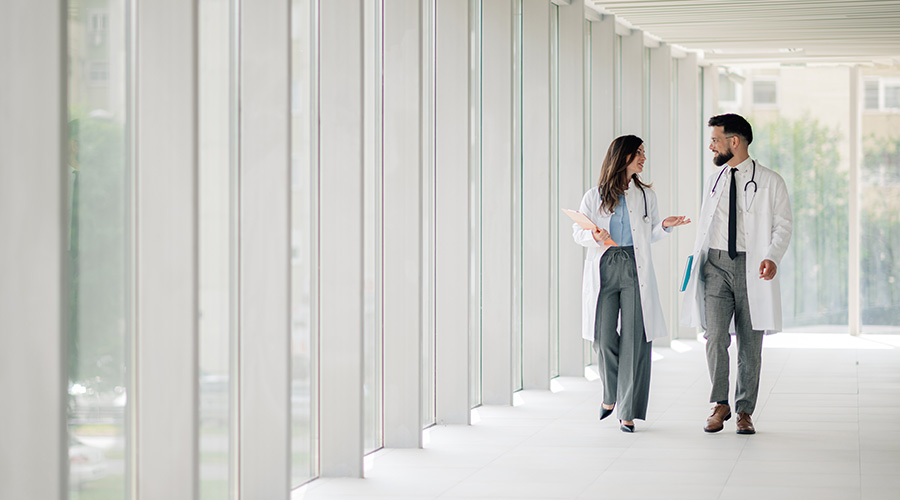Team-based learning and early, integrated clinical exposure responds to medical advancements, but the physical space of academic medical centers has been lagging to accommodate the change, according to an article on the Health Facilities Management website.
As medical schools have shifted away from repetitive memorization and become increasingly reliant on technology, traditional lecture halls and laboratories have become obsolete.
Clinical application of medical knowledge requires spaces that support small-group discussion, problem-based learning, and hands-on clinical skills training.
The contemporary medical education building encompasses a holistic environment to support both formal and informal learning.

 Mature Dry Surface Biofilm Presents a Problem for Candida Auris
Mature Dry Surface Biofilm Presents a Problem for Candida Auris Sutter Health's Arden Care Center Officially Opens
Sutter Health's Arden Care Center Officially Opens Insight Hospital and Medical Center Falls to Data Breach
Insight Hospital and Medical Center Falls to Data Breach The High Cost of Healthcare Violence
The High Cost of Healthcare Violence EVS Teams Can Improve Patient Experience in Emergency Departments
EVS Teams Can Improve Patient Experience in Emergency Departments